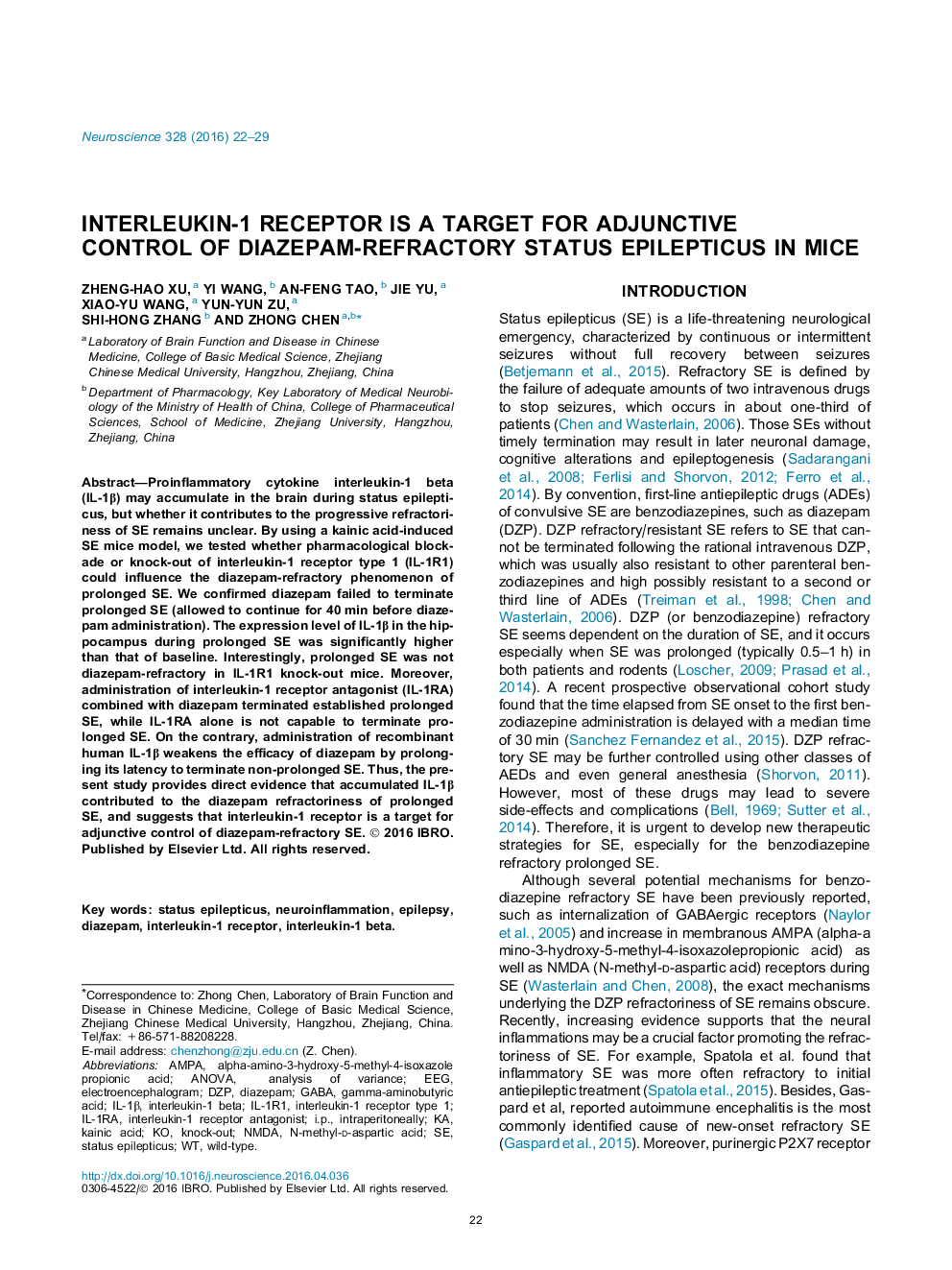| Article ID | Journal | Published Year | Pages | File Type |
|---|---|---|---|---|
| 6271134 | Neuroscience | 2016 | 8 Pages |
â¢Diazepam failed to terminate prolonged SE when hippocampal level of IL-1β increased.â¢Prolonged SE was not diazepam-refractory in IL-1R1 knock-out mice.â¢Administration of IL-1RA combined with diazepam terminated established prolonged SE.â¢Administration of IL-1β weakened the efficacy of diazepam on non-refractory SE.
Proinflammatory cytokine interleukin-1 beta (IL-1β) may accumulate in the brain during status epilepticus, but whether it contributes to the progressive refractoriness of SE remains unclear. By using a kainic acid-induced SE mice model, we tested whether pharmacological blockade or knock-out of interleukin-1 receptor type 1 (IL-1R1) could influence the diazepam-refractory phenomenon of prolonged SE. We confirmed diazepam failed to terminate prolonged SE (allowed to continue for 40 min before diazepam administration). The expression level of IL-1β in the hippocampus during prolonged SE was significantly higher than that of baseline. Interestingly, prolonged SE was not diazepam-refractory in IL-1R1 knock-out mice. Moreover, administration of interleukin-1 receptor antagonist (IL-1RA) combined with diazepam terminated established prolonged SE, while IL-1RA alone is not capable to terminate prolonged SE. On the contrary, administration of recombinant human IL-1β weakens the efficacy of diazepam by prolonging its latency to terminate non-prolonged SE. Thus, the present study provides direct evidence that accumulated IL-1β contributed to the diazepam refractoriness of prolonged SE, and suggests that interleukin-1 receptor is a target for adjunctive control of diazepam-refractory SE.
